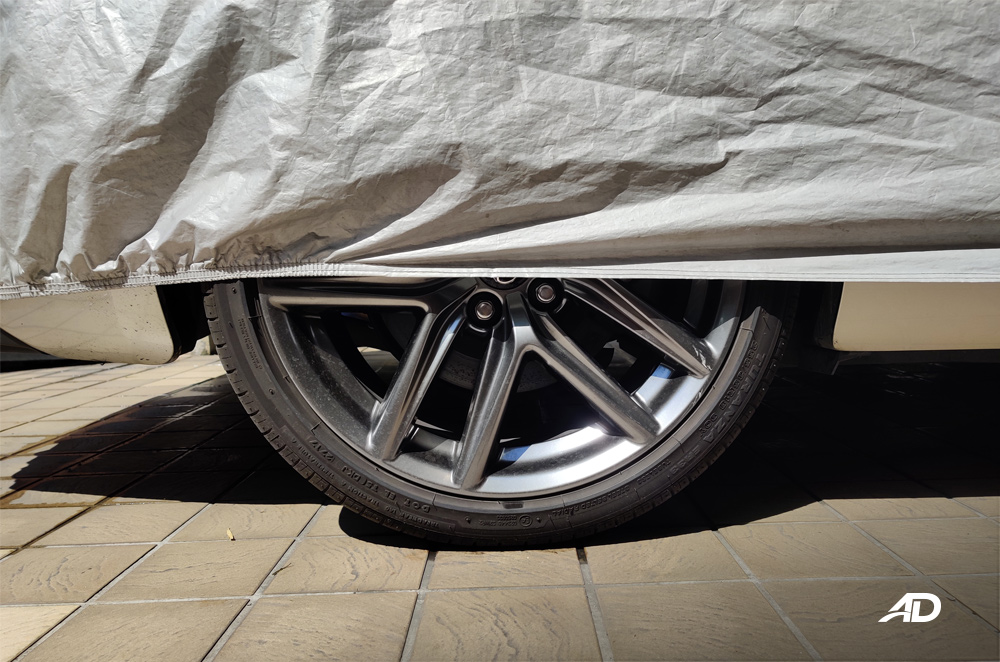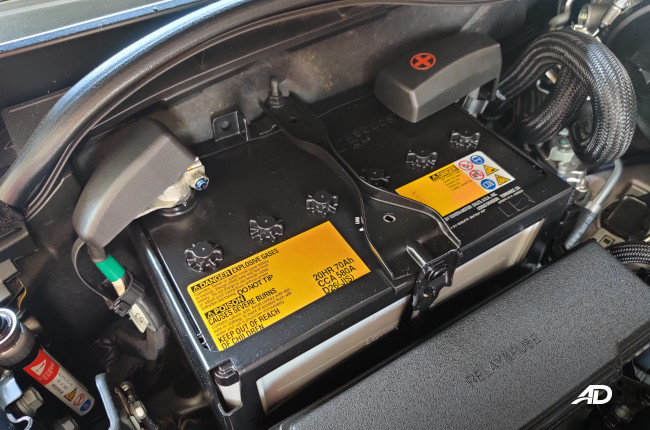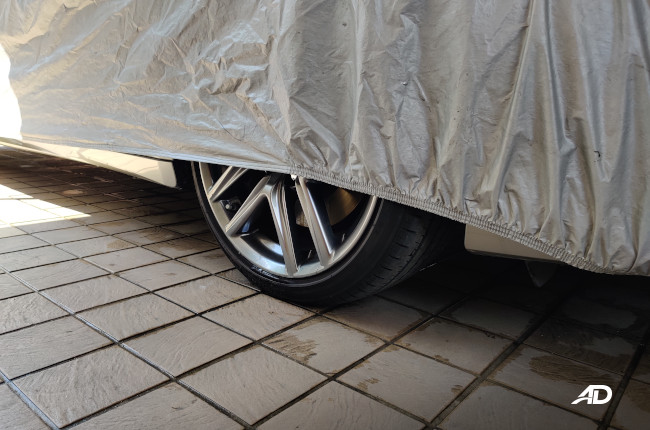
Contents
Most of us use our cars to accomplish several tasks. From getting groceries to going on a date with a special someone, an automobile is a tool for many things. It can even be a form of self-expression to some and a source of income for others. Though, when not in use there are a few considerations to be made to keep it in pristine condition.
If you’re not going to be bringing out your car for a long time, here are a few considerations that can be made for long-term storage whether it be a few weeks to a year. Let’s dive down.
Wash up and cleanout
Before committing your car to a period of isolation, You should wash it down thoroughly to remove any abrasive dust and dirt. You should also be wary of things like tree sap or bird feces, as they might be acidic to your car’s paint. After getting it washed, apply some wax to ensure the paint’s surface is protected.
With the exterior finished, the interior needs to be clean as well. Remove any trash inside and any items that may rot or leave smells. You can also leave some dehumidifiers inside in case there is some moisture lurking in the interior to defend against mold and odors.
Battery

A car’s battery should be good for about three to five years depending on use. Unlike your phone’s battery, which is a lithium-ion or lithium-polymer cell, a car’s lead-acid battery should not be discharged beyond 50% of its capacity so it won’t negatively affect its lifespan. Usually, when car batteries require a jump, that means that the cell is on its way out, and is due for replacement unless you accidentally discharged it prior.
For long-term storage, it is important to keep your battery charged up. You can do this by starting the engine from time to time, or using a plug-in trickle charger. You can also disconnect the battery to prevent unwanted discharge. This ensures that the next time you go pull the covers up and start your engine, your battery will have the necessary power to start the car, which brings us into our next bit.
Car Cover

Dust is a pesky thing for perfectionists, and it is also quite annoying whenever it settles on a pristine surface like an uninvited guest to an invitational gathering. Like a gate-crasher, the best defense against these particulates is to shut the door. A car cover can do you some good by shielding your car from the elements.
There are some considerations that need to be made with regard to your car cover. First and foremost, you need to look for the right size and the right shape for your car. A cover is effective because it fits properly and doesn't let dust in. Also, go for a cover with an interior fabric or microfiber lining. If you get a cover without a liner, you run the risk of scratching your car’s paint in case a dust particle gets finds its way underneath. These covers also shield against sunlight and can protect against ultra-violet paint degradation. Before putting your cover on, however, make sure the inside is clean and free from dirt.
Top up fuel

When your car is getting stored for a while, make sure that your gas tank has fuel. Don’t leave a tank close to empty for a long period of time if you want to protect from rust and oxidation especially in cars with metal tanks. Most new cars have plastic tanks, however, your fueling system isn’t completely corrosion resistant. So best to keep at least a quarter tank of fuel in your car before storing it. A fuel-stabilizer can also prevent any unwanted issues that may arise from long-term storage.
Though, if you keep your car in hibernation for a long time – let’s say a year or so, then decide to drive it, it would be best to drain the tank and put in new fuel in once you’re ready to run the engine.
Change oil

Another fluid that is often neglected is your car’s motor oil. Changing to fresh fluids before storage will help keep your motor free from any unwanted contaminants. If you’re going to leave your car for a long time, it’ll be best to have your engine flushed, and your oil fresh. If you’re not planning on driving your car for about a week, however, there is no need to change to engine oil.
Start your car from time to time during the storage period to ensure that your engine is properly lubricated. Make sure your oil doesn’t collect in one spot too long. It should be noted that oil can also oxidize and has a best-by date. This is why car companies recommend you change your oil depending on a set time interval or odometer reading.
Location

Just like a good business, location will determine many things. Your car will do better when it’s not exposed to direct sunlight day-in and day-out. It would also do well if the humidity inside the automobile is at acceptable levels. It would also do well if it was stored in a place away from potential dangers such as floods or other animals looking to nest. You could also avoid roof dents caused by falling fruits, and save yourself the hassle of cleaning up dried leaves if you don’t park it under a tree.
Either way, make sure to take care in choosing your storage location – if it can be helped, that is. If not, you have other safeguards.
Don’t use the parking brake

When storing your car for a long period of time, it’ll be better to leave the transmission in park or in-gear if it is a manual. Hand brake cables have a tendency to stretch over time and may snap if overly-corroded. This will also prevent the brakes from sticking together. This only applies for periods that are greater than a month or a few weeks.
Keep your tires inflated

Make sure that your tires are at the right pressure before heading into short-term storage. If you’re going to be leaving the car for more than a month, it would be advisable to remove the wheels and rest the car on jack stands. This will prevent you from having to change tires that got damaged because of flat spots caused by the weight of the car constantly on one end of the wheel.
If you don’t keep your tires topped up, and they eventually get flat, you can compromise the sidewall, which means that you have to replace the damaged tire.
Paperwork

Consider your car’s registration and insurance. Regardless of if you use the car or not, these are requirements that every owner should take into account. Usually, registration happens every year, and you should be able to note how much longer your car’s registration will last and plan accordingly. If you’ve missed the registration period, you will be fined the next time you register, or worse if your car is caught as unregistered once you do decide to finally bring it out after hibernation. The same goes for your insurance. Keep in in check so when you do decide to drive it out you can keep yourself away from trouble, and get yourself out of trouble.
Latest Features
-
The difference between wax and polish / Tips & Advice
Confused about whether your car needs a wax or polish? This article will guide you on what they are and what to choose for your car.
-
The 6 things every Ford Ranger must pass before it leaves the factory / Featured Article
Every Ford Ranger, from the base model to the Ranger Raptor, goes through a full inspection process before it leaves the factory. This includes six steps that make sure it’s ready to drive a...
-
Which GAC AION EV is best for your everyday lifestyle? / Featured Article
The GAC AION lineup has something for everyone, maybe you're after space, speed, or just a smooth city drive. Here's a quick breakdown of which model might work best for your day-to-day life...
Popular Articles
-
Cheapest cars under P700,000 in the Philippines
Jerome Tresvalles · Sep 02, 2024
-
First car or next car, the Ford EcoSport is a tough package to beat
Jun 18, 2021
-
Car Maintenance checklist and guide – here’s everything you need to know
Earl Lee · Jan 12, 2021
-
Most fuel efficient family cars in the Philippines
Bryan Aaron Rivera · Nov 27, 2020
-
2021 Geely Okavango — Everything you need to know
Joey Deriquito · Nov 19, 2020
-
Family cars in the Philippines with the biggest trunks
Sep 20, 2023
-
Head to head: Toyota Rush vs. Suzuki XL7
Joey Deriquito · Oct 28, 2020
-
Why oil changes are important for your car
Earl Lee · Nov 10, 2020
-
2021 Kia Stonic — What you need to know about it
Joey Deriquito · Oct 16, 2020
-
Top 7 tips for buying a used car in the Philippines
Joey Deriquito · Nov 26, 2020







